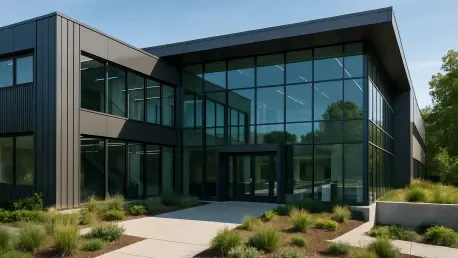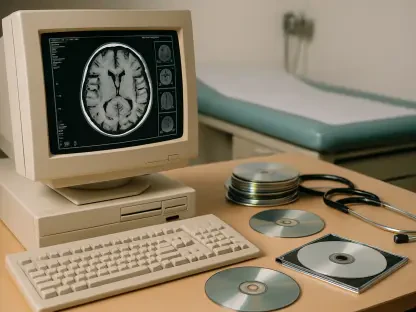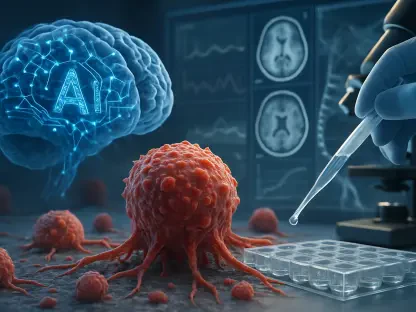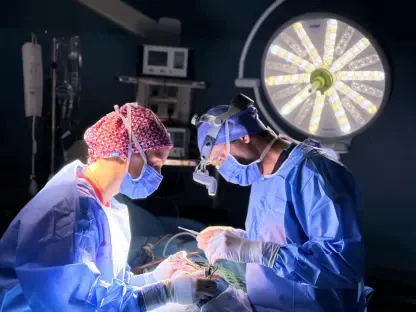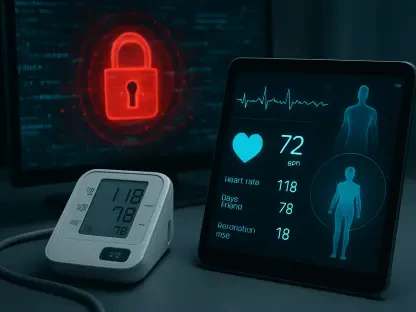In a landmark development for the future of healthcare, Bar-Ilan University and Sheba Medical Center, two of Israel’s most esteemed institutions, have unveiled a transformative $120 million joint institute dedicated to biotech innovation. Strategically positioned in the burgeoning Health Tech Valley (HTV) in Ramat Gan, this ambitious venture is designed to redefine the pace at which scientific discoveries evolve into tangible medical solutions. By focusing on pioneering fields such as cancer biology, artificial intelligence in healthcare, and medical robotics, the partnership is poised to confront some of the most pressing health challenges facing the world today. This initiative not only highlights Israel’s growing influence in the global biotech arena but also sets a new benchmark for collaborative research. With a fusion of academic rigor and clinical excellence, the institute promises to accelerate advancements that could save countless lives, marking a significant step forward in the quest for innovative healthcare solutions.
Revolutionizing Healthcare Through Translational Research
The primary objective of this newly established institute is to spearhead translational research, a process often described as the “bench-to-bedside” approach, which seeks to dramatically shorten the lengthy timelines that typically hinder new treatments and technologies from reaching patients. Traditionally, it can take decades for a laboratory discovery to become a viable clinical application, but this hub aims to disrupt that cycle by creating a seamless pipeline. By integrating the efforts of researchers, medical professionals, and industry experts under one roof, the initiative ensures that breakthroughs in the lab are swiftly tested and refined for real-world use. This focus on speed and efficiency addresses a critical need in healthcare, where delays can mean the difference between life and death for many patients worldwide, positioning the institute as a potential game-changer in how medical innovations are developed and deployed.
Moreover, the emphasis on translational research is underpinned by a commitment to solving urgent health issues through practical outcomes. The institute prioritizes projects that have the potential for immediate impact, such as developing faster diagnostic tools or more effective therapies for chronic diseases. Collaboration is key to this process, as it allows for constant feedback between theoretical research and clinical application, ensuring that innovations are both scientifically sound and practically feasible. This dynamic environment fosters a culture of rapid iteration, where ideas are tested, improved, and implemented without the bureaucratic delays often seen in traditional research settings. As a result, the institute stands to bridge significant gaps in the healthcare system, offering hope for quicker access to life-saving treatments and technologies that can transform patient care on a global scale.
Harnessing a Multidisciplinary Approach to Innovation
At the heart of this biotech hub lies a multidisciplinary framework that unites experts from diverse fields such as computational biology, regenerative medicine, and medical robotics to tackle complex health challenges holistically. This approach ensures that advancements are not isolated within a single domain but are instead interconnected, amplifying their potential impact. For instance, the integration of artificial intelligence to analyze vast datasets in cancer research complements efforts in 3D bioprinting aimed at creating artificial organs for transplantation. By bringing together varied perspectives, the institute fosters an environment where innovative ideas can cross-pollinate, leading to solutions that are both comprehensive and forward-thinking, addressing multiple facets of a problem simultaneously.
Beyond the blending of expertise, this multidisciplinary strategy also encourages the exploration of uncharted territories in medical science. Specialists in genetic engineering, for example, collaborate with roboticists to develop precision tools for minimally invasive surgeries, while bioinformatics experts work alongside clinicians to tailor treatments based on individual genetic profiles. This synergy not only accelerates the pace of discovery but also ensures that the resulting technologies are adaptable to a wide range of medical needs. The institute’s commitment to breaking down silos between disciplines sets it apart as a leader in biomedical innovation, paving the way for breakthroughs that could redefine standards of care. Such an approach is essential in a field where complexity demands diverse skill sets to achieve meaningful progress.
Leveraging the Strategic Power of Health Tech Valley
The decision to locate the institute in Health Tech Valley (HTV) in Ramat Gan is a strategic masterstroke, capitalizing on the proximity to both Sheba Medical Center, a global leader in clinical care, and Bar-Ilan University, renowned for its academic prowess in data science and engineering. HTV is envisioned as Israel’s foremost hub for healthcare technology, and the institute’s campus is equipped with cutting-edge laboratories and sustainable infrastructure designed to inspire collaboration and discovery. This physical closeness facilitates seamless interaction among researchers, clinicians, and industry stakeholders, creating a vibrant ecosystem where ideas can be shared and refined in real time. The location serves as a catalyst for innovation, enhancing the institute’s ability to translate research into actionable health solutions.
Additionally, the infrastructure of HTV is tailored to support the ambitious goals of the institute, providing an environment where technological and scientific advancements can flourish. State-of-the-art facilities enable researchers to conduct experiments with the latest tools, while sustainable building practices reflect a commitment to long-term environmental responsibility. The strategic positioning near two powerhouse institutions also attracts talent and investment, further strengthening the hub’s potential to drive significant progress in biotech. This unique setting not only boosts the efficiency of collaborative efforts but also positions HTV as a model for how integrated ecosystems can fuel healthcare innovation, potentially inspiring similar initiatives worldwide with its blend of accessibility and cutting-edge resources.
Exploring Cutting-Edge Research Domains
The research agenda at this biotech institute is both expansive and targeted, focusing on critical areas such as cancer biology, where artificial intelligence and bioinformatics are harnessed to develop highly personalized treatment plans. Another key area is 3D bioprinting, which offers a revolutionary solution to the global shortage of donor organs by engineering artificial tissues that could one day replace the need for traditional transplants. Additionally, the development of next-generation medical devices equipped with smart sensors aims to enhance diagnostic accuracy and enable continuous patient monitoring. These diverse yet interconnected research streams underscore the institute’s commitment to addressing some of the most daunting challenges in modern medicine through innovative approaches.
Furthermore, the scope of research extends to genetic engineering, utilizing advanced tools like CRISPR-Cas9 to edit genes with precision, potentially curing hereditary diseases at their source. Medical robotics also plays a pivotal role, with efforts focused on creating systems for minimally invasive surgeries that reduce recovery times and improve outcomes. Each of these domains represents a frontier in healthcare, pushing the boundaries of what is possible through technology and science. By investing in such a wide array of cutting-edge fields, the institute not only addresses immediate medical needs but also lays the groundwork for future breakthroughs that could transform the landscape of patient care, ensuring that its impact is both deep and enduring.
Driving Economic Growth and Global Influence
Beyond its scientific ambitions, the institute is set to become a powerful engine for economic growth within Israel’s already thriving biotech sector, which has seen substantial investment in recent years. By nurturing startups and forging partnerships with international technology giants, the hub aims to create a ripple effect of innovation and financial opportunity. This economic dimension is bolstered by an inclusive approach to open science, encouraging collaboration across borders to tackle global health challenges. Such efforts not only strengthen Israel’s position as a leader in biotech but also contribute to a worldwide network of innovation, amplifying the institute’s reach and influence.
Equally important is the potential for global impact through these economic and collaborative initiatives. The institute’s strategy of fostering cross-border partnerships ensures that its discoveries and technologies can benefit populations far beyond Israel’s borders, addressing universal health issues like cancer and organ shortages. By attracting international investment and talent, the hub also enhances its capacity to scale innovations for broader application, driving progress on a global stage. This dual focus on economic vitality and worldwide collaboration highlights a vision that extends beyond local success, aiming to position the institute as a cornerstone of international efforts to improve healthcare through cutting-edge research and strategic alliances.
Aligning with Global Healthcare Innovation Trends
Drawing inspiration from successful models like the American National Institutes of Health (NIH), the institute reflects a broader global trend toward integrated healthcare innovation ecosystems that prioritize efficiency and impact. A joint steering committee oversees operations, ensuring that resources are allocated strategically and research aligns with pressing health priorities through rigorous peer review. This governance structure mirrors proven frameworks that recognize the unsustainability of traditional timelines for medical advancements, especially in an era of rapid technological change. By adopting such a forward-thinking approach, the institute aligns itself with international best practices, enhancing its credibility and potential for success.
Moreover, this alignment with global trends extends to a shared understanding of the need for streamlined research-to-application pipelines in healthcare. The institute’s focus on reducing delays in bringing treatments to market resonates with worldwide efforts to address urgent medical crises through faster innovation cycles. By learning from and contributing to these global models, the hub ensures that its efforts are not only locally relevant but also part of a larger movement to transform healthcare delivery. This commitment to integration and efficiency positions the institute as a potential leader in setting new standards for how biomedical research can be conducted and applied across diverse contexts, benefiting patients everywhere.
Embracing Technology as a Catalyst for Change
Technology serves as the backbone of the institute’s mission, with tools like artificial intelligence, computational biology, and advanced materials driving the next wave of healthcare solutions. AI, for instance, enables the analysis of vast clinical and genomic datasets to uncover insights for personalized cancer treatments, while smart sensors in wearable devices offer real-time health monitoring for patients. These technological advancements are not mere trends but essential components in addressing the intricate challenges of modern medicine, ensuring that solutions are precise, scalable, and adaptable to evolving needs. This tech-centric vision places the institute at the forefront of global shifts toward digital health and precision medicine.
In addition, the integration of robotics and genetic engineering tools like CRISPR further illustrates the transformative power of technology within the institute’s research framework. Robotic systems for surgery enhance precision and reduce patient recovery times, while genetic edits hold the promise of eradicating inherited diseases. This comprehensive adoption of cutting-edge tools underscores a belief in technology as a catalyst for redefining healthcare outcomes. By prioritizing these advancements, the institute not only tackles current medical challenges but also prepares for future demands, ensuring that its contributions remain relevant and impactful in a rapidly changing field. Such a focus cements its role as a pioneer in leveraging technology for better health.
Building Success Through Collaborative Frameworks
Collaboration forms the cornerstone of this biotech initiative, weaving together academia, healthcare, and industry within Israel’s vibrant biotech landscape to create a powerful network of innovation. The institute’s model fosters symbiotic relationships that enhance the development and application of new technologies, drawing on local strengths while inviting global participation. This open innovation ethos ensures that knowledge and resources are shared freely, accelerating progress on a scale that isolated efforts could never achieve. By prioritizing partnerships, the hub sets a new standard for how collaborative frameworks can maximize the impact of biomedical research.
Furthermore, the institute’s commitment to international collaboration amplifies its potential to influence global healthcare. By engaging with scientific communities and multinational corporations worldwide, it creates opportunities for joint projects that address universal health concerns, from chronic diseases to pandemics. This global outreach is supported by a governance structure that balances local priorities with international standards, ensuring that collaborative efforts are both strategic and effective. The result is a dynamic ecosystem where innovation thrives through shared goals, positioning the institute as a model for how partnerships can drive meaningful advancements in medicine across borders and cultures.
Reflecting on a Milestone for Biomedical Progress
Looking back, the establishment of this joint institute by Bar-Ilan University and Sheba Medical Center marked a defining moment in the evolution of biomedical research. The $120 million investment laid a robust foundation for addressing inefficiencies in translating scientific discoveries into clinical solutions within the innovative ecosystem of Health Tech Valley. Key focus areas such as cancer biology, 3D bioprinting, and medical robotics underscored a comprehensive approach to solving complex health issues, while the integration of advanced technologies like AI and smart sensors highlighted a forward-thinking strategy. This initiative not only elevated Israel’s standing in the global biotech arena but also set a powerful example of what integrated collaboration could achieve in healthcare.
As a path forward, stakeholders should consider scaling these efforts by fostering even deeper international partnerships and securing additional funding to expand research scope. Prioritizing the development of accessible, cost-effective solutions will ensure that innovations reach underserved populations, maximizing global impact. Additionally, continuous evaluation of research outcomes through transparent metrics can refine strategies and maintain alignment with evolving health needs. This historic collaboration demonstrated the potential to reshape patient care, and building on its legacy with strategic planning and inclusive innovation promises to deliver lasting benefits for generations to come.
